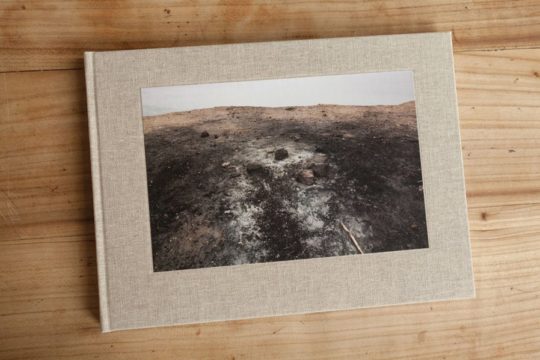Was there something? Or nothing?
With no horizon, one’s view into the distance is impeded. Scanning, searching, one’s gaze comes to a standstill in Leon Kirchlechner’s photographs. The eye may slow, but it doesn’t find repose. The peace is not contemplative: it is restless. The restricted field of view has a narrowing effect. It makes the room strangely dislocated, denies me the geographical coordinates that would give me a feeling of safety. And so, even as the onlooker, I remain dislocated in the usually centrically, often symmetrically composed images. I can’t make sense of this centrality. Nor is it reassuring. Although it gives me pause, it doesn’t offer anything for me to grasp. It’s not the enjoyable, thought-provoking stillness that many works of art inspire. Rather, it’s an oppressive, constricting stillness, one that causes alarm.
‚I was immediately enthralled by what I saw,‘ explains Leon Kirchlechner. ‚An inky black hole opened up suddenly and incomprehensibly in the cold, bare ground. It appeared to swallow the light. The unstructured, almost two-dimensional black was deceptive; the thought of falling into it made me shudder. How deep was it? What was in it? Was there anything? Or nothing? I expected something. I suspected something. I knew that nothing would happen and yet I was as if hypnotised. Filled with an illusory fear I stood still – and looked at what I could not see.‘
This experience has become encoded in his images. The unknown that prompts these seemingly so unremarkable existential tremors within us. That what one sees before oneself is not what one senses. Namely that what appears in the image is not even present. But that absence is exactly what arrests the gaze. The actual subject of the photograph, its raison d’être, is beyond the picture. “The absence of the imaged subject is nothing other than an intense presence, receding into itself, gathering itself together in its intensity,” wrote Jean-Luc Nancy. This is addressed fundamentally and unremittingly in Leon Kirchlechner’s images.
What is present in the image is, in fact, what is absent.
Text: Prof. Ulrich Fleischmann
- Veröffentlicht am Dienstag 24. Dezember 2024 von dienacht Publishing
- ISBN: 9783981511963
- 64 Seiten
- Genre: Film, Fotografie, Hardcover, Kunst, Softcover, TV, Video
